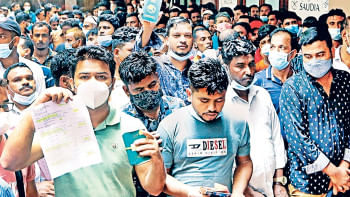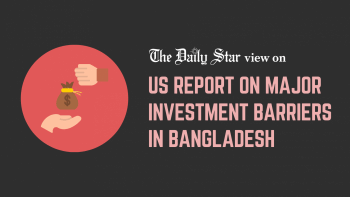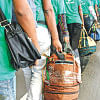Restoring confidence among disgruntled expats is vital

We are concerned about the growing effects of recent violence and subsequent disturbances through curfew and internet shutdown on our economy, which was already grappling with consistently high inflation, falling exports, and a protracted dollar crisis. Over the past few days, the media has highlighted the risks and losses in various sectors owing to the unrest and forced closures. One key sector where a similar impact could be expected is remittance from migrant workers. After a return to growth over the months since March, which saw the lowest remittances sent in 2024, the country, according to a report, could again be in for a rough ride thanks to a campaign by a section of migrant workers to halt remittances through formal channels.
Many migrants, disturbed by the brutal crackdown on protesters amid a total internet blackout, which largely cut off communications with their families back home, organised rallies and protests in various countries including in Europe, Asia, Middle East, and the UK and USA. Some of these rallies also called for a "shutdown" of remittances in solidarity with the quota reform protesters' enforcement of a "complete shutdown" since July 18. In the UAE, the Abu Dhabi Federal Court of Appeal already sentenced 57 Bangladeshi nationals to long prison terms after they carried out protests in multiple locations. Protests in some other countries, especially in Middle East, were more muted because of local restrictions. Against this backdrop, the government has reportedly sent letters to our missions in foreign countries asking about those involved in such protests and the reasons for their agitation.
In all likelihood, the fallout of recent events may rumble on unless the government takes steps to restore confidence among our migrant workers. A Bangladesh Bank official, acknowledging the existence of the campaign to boycott formal channels and use informal channels like hundi to send remittances, has expressed hope that migrants would not respond to such calls. It is understandable that remittances were down during the recent bank and internet closures. But since many migrants receive their salaries at the end or beginning of a month, the true effect of the resistance against formal transactions—a key source of our foreign exchange reserves—can be determined over the next week or so.
These developments come at a time when the government's initiatives to encourage formal transactions and investments by Bangladeshi expatriates are being criticised for being inadequate. Even though the government hopes that recent events will not discourage foreign direct investment, the fact is, such concerns go long back thanks to preexisting issues like corruption, systemic barriers, anti-competitive environment, etc. But it is crucial that our expatriates and foreign investors do not turn away from us at this critical economic juncture.
To restore confidence among migrants perturbed by the recent turn of events, we urge the government to do everything that is necessary, including ensuring uninterrupted communications, ensuring that those who have been jailed abroad for protesting are released through proper diplomatic efforts, listening to the grievances of disgruntled migrants, and addressing the root causes of recent unrest with complete transparency and accountability.


 For all latest news, follow The Daily Star's Google News channel.
For all latest news, follow The Daily Star's Google News channel. 











Comments